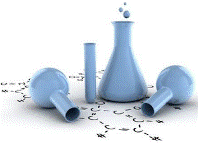Chemical and Biomolecular Engineering, Department of

Department of Chemical and Biomolecular Engineering: Faculty Publications
Date of this Version
2018
Document Type
Article
Citation
Bioresources and Bioprocesses (2018) 5: 47
doi: 10.1186/s40643-018-0233-5
Abstract
Despite years of concerted research efforts, an industrial-scale technology has yet to emerge for production and conversion of algal biomass into biofuels and bioproducts. The objective of this review is to explore the ways of possible integration of biology, ecology and engineering for sustainable large algal cultivation and biofuel production systems. Beside the costs of nutrients, such as nitrogen and phosphorous, and fresh water, upstream technologies which are not ready for commercialization both impede economic feasibility and conflict with the ecological benefits in the sector. Focusing mainly on the engineering side of chemical conversion of algae to biodiesel has also become obstacle. However, to reduce the costs, one potential strategy has been progressing steadily to synergistically link algal aquaculture to the governmentally mandated reduction of nitrogen and phosphorous concentrations in municipal wastewater. Recent research also supports the suppositions of scalability and cost reduction. Noticeably, less is known of the economic impact of conversion of the whole algae-based biorefinery sector with additional biochemical and thermochemical processes and integration with ecological constraints. This review finds that a biorefinery approach with integrated biology, ecology, and engineering could lead to a feasible algal-based technology for variety of biofuels and bioproducts.
Tables S1-S3, Figs S1-S5, Addl refs


Comments
Copyright © 2018, the authors. Open access
License: Creative Commons Attribution 4.0 International (CC BY 4.0)